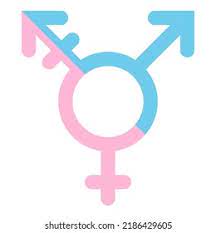When you think about male hormones, testosterone usually steals the spotlight. However, estradiol, a form of estrogen, plays a crucial role in men’s health too. Often overlooked, this hormone is vital for maintaining various bodily functions and can significantly impact mood, energy levels, and overall well-being. Understanding estradiol levels in men is essential to recognizing how hormonal balance affects health.
In this article, we’ll dive deep into estradiol—what it is, why it matters, and how it influences your life. From recognizing symptoms of imbalance to exploring ways to manage your levels, we’ve got the lowdown on everything you need to know about estradiol in men.Are Transgender Men Real MenHow Do Transgenders Have Intercourse
What is Estradiol and Why It Matters for Men
Estradiol is a steroid hormone that’s primarily known as a female hormone, but it’s just as important for men. It is produced in smaller amounts in men, mainly in the testes and adrenal glands. Estradiol contributes to various functions, including bone density, fat distribution, and libido. The right amount of estradiol can help keep your energy levels up and your mood stable, making it a key player in overall health.
While testosterone gets most of the attention when it comes to male hormones, estradiol’s role cannot be underestimated. It works in tandem with testosterone, helping to regulate the reproductive system and control various physiological processes. An imbalance can lead to several health issues, making awareness of estradiol levels critical for men of all ages.
The Role of Estradiol in Male Hormonal Balance
Estradiol contributes to the intricate web of hormones that govern male health. It helps maintain a proper balance with testosterone, influencing everything from sexual function to mood stability. Too little estradiol can lead to issues like decreased libido and fatigue, while too much can result in emotional fluctuations and gynecomastia (breast tissue growth). Essentially, estradiol is a balancing act that helps men maintain their vitality.
This delicate equilibrium is essential for a variety of bodily functions. Estradiol aids in the regulation of cholesterol levels, promotes healthy bone density, and supports cognitive function. In essence, estradiol is part of the intricate dance of hormones that keeps men feeling and functioning at their best.
How Estradiol Levels Affect Your Health and Mood
Estradiol levels can have a profound effect on both physical health and emotional well-being. Low estradiol levels may lead to fatigue, irritability, and reduced sexual interest. These symptoms can create a vicious cycle, as low mood can further exacerbate hormonal imbalances. Conversely, high estradiol levels can lead to mood swings, anxiety, and issues like weight gain, which can also affect self-esteem and mental health.
Moreover, the relationship between estradiol and testosterone can create additional complications. When estradiol levels are out of balance, it can affect how well testosterone functions in the body. For instance, high estradiol can diminish testosterone’s effectiveness, leading to a cascade of health problems, including reduced muscle mass and increased body fat.
Signs Your Estradiol Levels Might Be Out of Whack
Recognizing the signs of estradiol imbalance is crucial for maintaining overall health. Some common symptoms of high estradiol levels include weight gain, especially around the abdomen, mood swings, and gynecomastia. You may also experience decreased libido, fatigue, or difficulty concentrating. If you notice these symptoms, it could be a signal that your estradiol levels warrant investigation.
On the flip side, low estradiol levels can manifest as reduced bone density, leading to a higher risk of fractures, as well as fatigue and low mood. You might also notice a decline in sexual function or interest, which can impact relationships. Being aware of these signs can help you take proactive steps toward achieving hormonal balance.
Common Causes of Low or High Estradiol in Men
Several factors can lead to abnormal estradiol levels in men. Lifestyle choices, such as poor diet, lack of exercise, and high-stress levels, can negatively affect hormonal balance. Additionally, certain medical conditions, including obesity, liver disease, and hormonal disorders, can skew estradiol levels. Environmental factors, such as exposure to endocrine disruptors found in plastics and chemicals, can also play a role.
On the other hand, high estradiol levels can often be linked to obesity, as excess body fat can convert testosterone into estradiol. Aging is another factor; as men get older, testosterone levels typically decline, which can lead to relatively higher estradiol levels. Understanding these causes is the first step toward finding effective solutions.
Testing and Monitoring Your Estradiol Levels
If you’re experiencing symptoms of hormonal imbalance, testing your estradiol levels is a wise move. A simple blood test can measure the levels of estradiol in your body. Your healthcare provider may recommend this test if you have symptoms such as weight gain, mood changes, or issues with libido. It’s essential to monitor your levels regularly, especially if you’ve been diagnosed with any conditions that affect hormone production.
Understanding the normal range for estradiol levels is also key. For men, normal estradiol levels typically fall between 10 to 40 picograms per milliliter (pg/mL). If your levels fall outside this range, it may indicate a need for further investigation and possible treatment.
Tips for Managing Estradiol Levels Naturally
Managing estradiol levels naturally involves making lifestyle changes that promote hormonal balance. Regular physical activity is one of the most effective ways to keep your hormones in check; exercises like strength training can help regulate testosterone and estradiol. Paying attention to your diet is also crucial—incorporating foods rich in omega-3 fatty acids, fiber, and antioxidants can support hormonal health.
Additionally, managing stress through practices like mindfulness, yoga, or meditation can significantly impact hormonal balance. Stress can lead to increased cortisol levels, which may disrupt the balance between testosterone and estradiol. By prioritizing self-care and healthy habits, you can take proactive steps to manage your estradiol levels and enhance your overall well-being.
When to Consult a Doctor About Estradiol Issues
If you suspect your estradiol levels are off, it’s wise to consult a healthcare provider. Persistent symptoms such as unexplained weight gain, mood swings, or decreased libido warrant a professional opinion. A doctor can help determine whether your symptoms are related to hormonal imbalance or if there might be other underlying issues at play.
Additionally, if you’ve already been diagnosed with hormonal imbalances, regular check-ins with your doctor are essential. They can help you monitor your estradiol levels and adjust your treatment plan as needed. Remember, hormonal health is a vital part of your overall well-being, and seeking professional advice can set you on the right path.
Understanding estradiol levels in men is crucial for maintaining a healthy hormonal balance. From recognizing the signs of imbalance to making lifestyle changes that can help regulate your levels, knowledge is power when it comes to your health. If you suspect that your estradiol levels are affecting your life, don’t hesitate to reach out to a healthcare professional. By taking an informed approach, you can navigate the complexities of hormonal health and feel your best every day.


